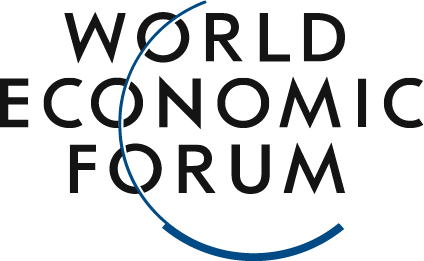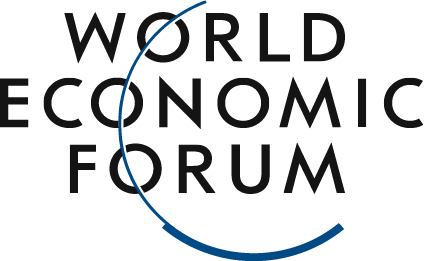Cargo traffic congestion remains a serious urban issue, also contributing to emissions, noise, and road accidents.
Image source:Unsplash
Jamie Wylie
Head of Urban Mobility at the World Economic Forum
Adrienne Gibbs
Global Head of the World Economic Forum’s Global New Mobility Alliance
Although e-commerce growth is slowing down, its expansion remains significantly higher than pre-pandemic levels.
Cargo congestion remains a serious issue for cities, also leading to emissions, noise, and road accidents.
To reduce cities' transportation footprints, innovative and sustainable solutions are needed—presenting the private sector with a unique opportunity to take a leadership role in driving efficient practices.
The World Economic Forum's "Global New Mobility Alliance" is exploring how, through a new initiative, the private sector can take the lead in driving sustainable and innovative delivery solutions.
Since the early 21st century, online shopping has reshaped consumer expectations and behaviors. Next-day delivery and food-delivery apps have become commonplace, while the rise of remote work has further streamlined the convenience of doorstep deliveries. These trends were amplified during the COVID-19 pandemic—and are likely to persist well into the future.As a result, logistics providers, retailers, and e-commerce companies have quickly responded by expanding their service offerings and introducing flexible delivery options to meet consumer demands. However, these changes also bring challenges. The surge in demand inevitably leads to more vehicles on the road, which is difficult to avoid. While cities are already grappling with traffic congestion, the increase in delivery vehicles could further prolong travel times and negatively impact local economies. Moreover, the growing number of transport vehicles poses additional challenges for carbon emission control and road safety.Governments around the world are working hard to build more sustainable cities—now is the perfect time to tackle the issue of transportation footprints and explore innovative solutions.How the private sector is driving transformation in urban deliveryWhile many cities are actively working to tackle congestion and environmental challenges, the implementation of policies and regulations—such as congestion charges and other measures—requires coordinated action from the private sector. Whether it’s e-commerce, retail, or logistics providers, private companies stand to gain significantly by adopting new, innovative, and sustainable delivery solutions. In doing so, businesses can tap into emerging opportunities, enhance operational efficiency, and, at the same time, collaborate with governments to create more livable, environmentally sustainable urban environments. This article will explore some of the initiatives that companies have already undertaken.Electrified Freight TransportAll major transportation companies are actively transitioning to electric vehicle (EV) fleets. In its Climate Pledge, Amazon announced a partnership with EV startup Rivian, committing to add 100,000 electric delivery vehicles to its fleet by 2030. As a key player in the logistics industry, Amazon’s move signals a major shift toward electrification in the market.IKEA is also at the forefront of electric vehicle delivery, announcing its commitment to achieve 100% zero-emission last-mile deliveries across all its markets by 2025. DHL has similarly pledged to transition 60% of its last-mile delivery operations to electric vehicles by 2030, while major beverage companies like AB InBev are also expanding their zero-emission delivery initiatives.However, replacing existing vehicles with electric cars alone won't solve the congestion problem—it will also require other solutions.Embrace technology and dataData and technology are at the heart of delivery innovation. Data-driven solutions help gain deeper insights into the frequency, types, and patterns of deliveries, enabling the identification of more efficient logistics approaches.The Gothenburg city government in Sweden has been collaborating with the private sector to share data in order to tackle this challenge. The city has partnered with logistics companies, introducing data-sharing agreements that provide insights into delivery routes and space usage. This initiative helps deepen understanding of issues like loading-and-unloading zone utilization, enabling more efficient space management while also guiding future logistics decisions. Logistics firms such as PostNord and Schenker have already signed up to the initiative, benefiting from advanced technology and data-driven solutions—allowing them to cut down on unnecessary driving, minimize queue times, and ultimately reduce emissions.The European Institute of Innovation & Technology (EIT)’s Urban Mobility program is collaborating with public and private sectors to conduct a series of trials and pilot projects, exploring the potential of data. For instance, the "Coding the Curbs" project is testing a platform that allows logistics companies to book loading and unloading zones across cities. In partnership with cities like Groningen and Bucharest, the initiative aims to demonstrate how reserved loading areas can help cut delivery times and reduce unnecessary vehicle mileage. Although the project is still in its early stages, it has already teamed up with logistics firms to experiment with ways to enhance delivery efficiency.Cities and businesses working togetherMany businesses are now collaborating with city authorities to tackle ongoing challenges. In London’s financial district, Amazon has teamed up with local government to transform an underutilized parking lot into a "last-mile logistics hub." The project repurposed 39 parking spaces into an Amazon parcel delivery center, from which cyclists and foot couriers now operate. This innovative partnership is expected to reduce car traffic on the roads by up to 85 vehicles daily.In another London case, a major property owner partnered with stakeholders to reduce delivery vehicles on Regent Street, one of the city’s key shopping districts. The property owner collaborated with a logistics company to supply retailers via a centralized distribution hub, using electric trucks for scheduled deliveries. This initiative helped cut down delivery vehicle traffic in the area by as much as 80%.Exploring new partnershipsIn 2020, Uber announced its commitment to becoming a zero-emission mobility platform by 2040. By 2023, the company expanded this goal to eliminate emissions from Uber Eats delivery operations by 2040—and is now collaborating with global leaders in electric transportation and charging infrastructure to scale up car-free delivery options.For instance, the company is collaborating with Gogoro, a Taiwan-based leader in smart electric motorcycle hardware, to help delivery riders transition more easily—and at a lower cost—to a greener delivery model. This partnership, launched in 2023, provides Yumeya’s delivery drivers with discounted electric scooters, convenient battery-swapping solutions, and other valuable perks. Thanks to the rapid adoption of the new delivery model by riders, Yumeya and Gogoro have extended their collaboration for another two years. Together, they aim to increase the share of green deliveries on Yumeya’s platform in Taiwan—from nearly 20% currently to 40% by the end of 2026.The private sector can play a leading role in developing sustainable, innovative delivery services, reducing the environmental impact of transportation, and tapping into new business opportunities—but its collaboration with city management agencies is essential for success.The World Economic Forum’s “Global New Mobility Alliance” initiative is exploring public-private partnerships to create a sustainable future for the delivery industry, aiming to raise ambition, drive action, and develop innovative, eco-friendly last-mile delivery solutions. Interested stakeholders are invited to learn more and find contact information here.Embracing innovation to achieve sustainable delivery, public-private partnerships can help create livable cities and rebuild public trust.
The above content solely represents the author's personal views.This article is translated from the World Economic Forum's Agenda blog; the Chinese version is for reference purposes only.Feel free to share this on WeChat Moments; please leave a comment below the post if you’d like to republish.
Translated by: Sun Qian | Edited by: Wang Can
The World Economic Forum is an independent and neutral platform dedicated to bringing together diverse perspectives to discuss critical global, regional, and industry-specific issues.
Follow us on Weibo, WeChat Video Accounts, Douyin, and Xiaohongshu!
"World Economic Forum"





